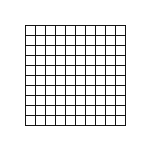|
Thanks everyone, especially Tendai, for a very interesting thread.
Cessna fucked around with this message at 00:24 on Dec 6, 2017 |
|
|
|

|
| # ? May 7, 2024 00:20 |
|
The Qur'an doesn't actually forbid alcohol or intoxicants (khamr) in general. It says that putting these things into our bodies is bad for us, and we should weigh the pros and cons, but only in the Hadith did the Prophet Muhammad PBUH say that it is forbidden. So in that way you can say the Qur'an holds more weight than the Hadith, and therefore justify such things. There are also certain Schools in the faith that follow different trends. For example, in Maliki, the Qur'an is most important of course, with the Hadith second. But the consensus of the people of Medina is third, giving those who follow the School a chance to "grow" with the changes in society, which one could also say would justify things like alcohol consumption. The other caveat to this is that one should not commit to prayer while the mind is altered, and praying five times throughout the day would be hard to do while imbibing. I'm sorry if that's a little long winded but I hope it clears up your question.
|
|
|
|
Sorry, phone posting, but I also forgot to mention that what the Prophet Muhammad PBUH said specifically was "Whatever intoxicates in large quantities, in small quantities is forbidden." So that could really be translated to any intoxicants or personal addiction, not just alcohol.
|
|
|
|
Hello Muslim goons. Are there more of you out there? At the start of this thread, I asked Tendai what her Islam meant to her. If you please, tell me what it means to you.
|
|
|
|
Beta Orbiter posted:The Qur'an doesn't actually forbid alcohol or intoxicants (khamr) in general. It says that putting these things into our bodies is bad for us, and we should weigh the pros and cons, but only in the Hadith did the Prophet Muhammad PBUH say that it is forbidden. So in that way you can say the Qur'an holds more weight than the Hadith, and therefore justify such things. There are also certain Schools in the faith that follow different trends. For example, in Maliki, the Qur'an is most important of course, with the Hadith second. But the consensus of the people of Medina is third, giving those who follow the School a chance to "grow" with the changes in society, which one could also say would justify things like alcohol consumption. The other caveat to this is that one should not commit to prayer while the mind is altered, and praying five times throughout the day would be hard to do while imbibing. I am not a really good poster because quite frankly work ate my brain and when I get home I am all "nah, I am not prepared for theological thought right now, just post in the cat thread." Anyhow, there should be more Muslims around here. There used to be!
|
|
|
|
Beta Orbiter posted:Sorry, phone posting, but I also forgot to mention that what the Prophet Muhammad PBUH said specifically was "Whatever intoxicates in large quantities, in small quantities is forbidden." So that could really be translated to any intoxicants or personal addiction, not just alcohol. But there are exceptions for pain killers I hope? As in "Ali takes morphine because he has cancer, the morphine leaves him high, but pain free. Is Ali still allowed to pray?"
|
|
|
|
Speaking in broad generalities based on what I remember of the old and modern scholars I've read (in other words, qualifying the hell out of this), the general idea is that if it's something that you need for medical reasons, it's okay. This will vary depending on any number of things like culture and preferred school, but that is the general idea that most people I've read seem okay with. The preference is (as it should be, given the opioid epidemic in the US at least) for using painkillers without narcotic effect, but for the most part the scholars on both conservative and liberal sides are pretty okay with medically-prescribed things of that nature. The debate over medical cannabis has been subtle but interesting to follow. Prayer in particular, you really are supposed to approach it without "a mind befogged" as it's put. This is one of the places where the Quran is actually pretty specific, and it's not based on tradition or the hadith: "Approach not prayers with a mind befogged, until ye can understand all that ye say." So the preference in your idea would be that Ali doesn't pray at all, until he's in a place where he can do it with his head in the right place. Just like people aren't expected to fast if their health or circumstances won't allow it. Islam has a lot of "do this, except when it would be an undue hardship for you" built into it in the day to day life. Anyhow. In my readings, the part about prayer is generally taken just to mean the ritual prayer - which supplication in the more Christian prayer sense is not. No one's gonna be like "Ali don't pray to Allah for respite or for your family" unless they're a garbage human being. Tendai fucked around with this message at 19:16 on Dec 10, 2017 |
|
|
|
Beta Orbiter posted:Sorry, phone posting, but I also forgot to mention that what the Prophet Muhammad PBUH said specifically was "Whatever intoxicates in large quantities, in small quantities is forbidden." So that could really be translated to any intoxicants or personal addiction, not just alcohol. I mean, if you take this at it's most literal level, then oxygen would be forbidden.
|
|
|
|
BattyKiara posted:But there are exceptions for pain killers I hope? As in "Ali takes morphine because he has cancer, the morphine leaves him high, but pain free. Is Ali still allowed to pray?" So, there are two ways that we can look at this, or two that I am familiar with. The first is that, like in all other matters, Allah SWT is very understanding and forgiving of us. In fact, one of His 99 Names is Al Ghaffur, which means "The Most Forgiving One." And there are instructions in both the Qur'an and Hadith that we are told that if we are unable to commit to things, especially due to ill health, then our actions, or inactions, are admissable. So in your scenario, Ali could either not pray at all due to sickness and the narcotic, or pray still when best able, and commit to only what he can handle, and when. Also, as I mentioned earlier, the Qur'an tells us that there are the pros and cons. "In them is great sin, and some profit, for men; but the sin is greater than the profit." (Al-Baqara; 2:219) So while abuse of narcotics is sinful, in some instances there is profit; managing pain would be a benefit as long as it is not abused. And if I were Ali, I would pray as often as I could, and then when inshallah the cancer was gone, I would fast and would commit to sawm (fasting) and zakat (charity) for a VERY long time as a show of submission and thanks. I am not very well versed in the other Schools besides Maliki, but I recall someone I was speaking with from maybe Hanafi that said when one is unable to pray, they count their absences and make up for them when they are able over time. In a similar fashion to a traveler being unable to pray and making up for it at the end of a journey. But I'll have to double check that.
|
|
|
|
CountFosco posted:I mean, if you take this at it's most literal level, then oxygen would be forbidden. One of the many beautiful aspects of the Qur'an is that it is structurally vague so that we may come to our own understanding of some things. Many ayah have been given structure in Hadith or other forms of solidification, to either help bring unification or understanding,, buthers are left for one to build their personal relationship with Allah SWT.
|
|
|
|
Muslims aren't as driven with "rule lawyering" as, say, some aspects of judaism (the story escapes me? The story of some prophet/rabbi arguing with God and God going "My children have overruled me!"). The idea isn't necessarily to be pedantic, rather rulings tend to be (i'm quoting here) "dependent on the presence of the effective cause rather than wisdom behind it". I'll regurgitate this, it gives a good explanation behind how he deduce rulings in (most schools of thinking within) the muslim community: quote:Traffic lights exist to prevent accidents on the road. This is the hikmah (wisdom) behind their existence. If a driver sees red, he must stop. The effective cause is the red light which tells us to stop. Which of these two is the ruling (of having to stop) based on? Is it that a driver must only stop when there is an immediate risk of an accident (since this is the wisdom behind having traffic lights in the first place)? Or must the driver stop each time he sees red, even if he is quite certain that continuing is safe? The answer of course is the latter. Although driving through a red traffic light may at times be safe, it is not allowed, because legal rulings are based on their effective causes (in this case the red light) and not their initial wisdom.
|
|
|
|
Thank you for interesting and informative answers. But of course, this leads me to yet another medical question involving drugs. So we have established that you should stay clear of any intoxicants, including medical ones, when praying. But what about mental illness? Let's take bipolar disorder. Where you might end up taking drugs that alter your mind in order for your mind to function properly. Yes, simplifying a lot here. On one hand you could say that the drugs alter your mind, and that means you are not in a clear state. But on the other hand, if you go off your meds you might also have a very confused and not at all in the right place for prayer mental state. What I'm trying to say here is that there must be a lot of grey areas?
|
|
|
|
BattyKiara posted:Thank you for interesting and informative answers. There are certainly areas that require consensus and reasoning from a medical/scientific perspective. I, personally, wouldn't argue that SSRIs alter you to be in an unclear state, on their own. Mental conditions such as depression etc effect people in such wildly different ways, that for me to be an armchair sheikh OR doctor would reflect poorly on everyone involved. But, the general view is that if there is medication for a sickness (physical or mental), then one can/should take it.
|
|
|
|
So, that is an interesting question. One of the things I noted was interest on my return to online Islamic forums like Reddit and the like was a strong push for what I would consider woo woo medicine with regards to mental health and physical health as well. There was a weird undercurrent of distrust against mental health professionals in particular that was bizarre to me. Luckily, saner minds seem to Prevail for the most part, and I think most people would essentially take the view that you are bringing your brain chemistry back to a point of normality so to speak, so it doesn't count. That might get a bit trickier with things like Xanax or other drugs with a notable sedation effect but I have not looked into that much to be honest.
|
|
|
|
That is a very interesting question. After some thought, and not really looking much into it, I'd have to agree with Tendai. Especially with the increase in mental health awareness and such worldwide, I would image that drugs that regulate chemical imbalance or mood swings, depression, etc. would be absolutely admissable. But I would look into it more before I could give you an honest answer.
|
|
|
|
Caufman posted:Hello Muslim goons. Are there more of you out there? At the start of this thread, I asked Tendai what her Islam meant to her. If you please, tell me what it means to you. Sorry it took so long to get back. Work keeps me busy and I don't have regular hours so it's totally unpredictable. Islam to me is a rock above the water in the river of life. It's firm and gives me protection, safety, and comfort in times when I need it. It means I have a community of brothers and sisters wherever I go that will always ensure one another never goes without. My story is an interesting one, and so my peace with Islam goes deep. But that can be for another post. Islam is, if you look into it, the final direction from Allah SWT. So, in a far less elegant form than the original words, many times through history, starting with the Prophet Adam PBUH, Allah SWT came down to a prophet and told them how mankind should worship and live our lives so that we may ascend to Paradise. And time after time, man would take that and obey for a while, but eventually, someone changed the words, or decided to worship an idol, or became corrupt. So every time mankind fell from grace, Allah SWT again sent to a prophet a new way of delivering the message. This cycle continued through the prophets that many know the names of even today: Nuh (Noah), Ibrahim (Abraham), Musa (Moses), Lut (Lot), Isa (Jesus) PBUT, and more. And Allah SWT after seeing man break away so many times, decided to send one last message. He chose a prophet, the Prophet Muhammad PBUH to deliver the final message, the Qur'an, and deliver it to the people. With the guidance of the angel Jibreel (Gabriel) the words of the Qur'an were put down. And what fascinated me about this is that there are Qur'an in museums that can be carbon dated to almost 1,400 years old, and yet, word for word, they are the same as the Qur'an that rests beside my bed. So I know that I am reading the message of Allah SWT as it was intended, and to me that is important. It shows that man has not altered it over time, and that Allah SWT indeed sent his final message to us, just as he said he would. Also, the Qur'an speaks on many compelling subjects, that especially for the time, are too detailed or too unknown (at the time the Prophet Muhammad received the word) to be false. It speaks of the atmosphere suspended around the Earth, the movement of the planets and the moons, and the stars. It's speaks of the nine (think about it from the period, nine!) planets in our system. The development of a fetus in the womb. Many works that we now know through science but could not have known then are described in this work, the word of Allah SWT. And if these things can be proven now, then why should I doubt the rest of the message sent to the Prophet Muhammad PBUH?
|
|
|
|
This question is sort of outside of the topic, but I hope it is allowed anyway. Do Arabic names have meaning? As in, is it common to use adjectives as given names? Religious or otherwise. As in, do people name their children things like Beautiful, Green, Knowing, Merciful, etc?
BattyKiara fucked around with this message at 14:03 on Jan 2, 2018 |
|
|
|
BattyKiara posted:This question is sort of outside of the topic, but I hope it is allowed anyway. Do Arabic names have meaning? As in, is it common to use adjectives as given names? Religious or otherwise. As in, do people name their children things like Beautiful, Green, Knowing, Merciful, etc? Kind of, for example Muhammad itself means something like "praiseworthy" and Aisha means "lively". But it's not like Chinese where you can just use any old word as a name. It seems people mostly choose names of religious figures and historical rulers for boys, and for girls also religious figures, and various poetic stuff like Leyla (night), Nuur (light) and Yasmin (Jasmine, from the Persian language). So there's a limited set of names that most people choose. Caveat: I don't know if the meanings I gave are the common way to express these things in Arabic, or if e.g. Leila is some obscure or archaic word for night and you'd use some other word to talk about night normally.
|
|
|
|
Nah Leila the name and leila for night are the same words. Abdul is a fairly common manís name, and has to be followed by a second word, since abd (عبد) means servant or slave, and al- is the definite article. So Abdullah is عبد الله Servant of Allah. Saladinís name is similar. Salah al-Din being weapon of the faith. I also had a teacher from Egypt whose name was Ramses.
|
|
|
|
Yeah. For some some people, the meaning behind the name they choose for their kids is a big deal. I know when I first converted and I went through a "I am a DIFFERENT person now!" phase and had people call me by an arabic name, I picked one that held some significant meaning for me. Although I realized I was just being peer pressured and my birth name's meaning was just as significant so I just go by that. Except for the most stubborn of people that are obsessed with arab-washing anyone and anything muslim/islamic in nature. 
|
|
|
|
Mosque question: I recently visited a nearby mosque (disappointed, no resident cats) and learned about the NO SHOES rule. Which I can understand. But what about Muslims in wheelchairs? Do the wheels count as shoes since they touch the ground? And when you wash before prayers, do you also wash the wheelchair? Same with artificial limbs, do you wash your "new" arm or leg? Or remove the artificial limbs before prayer?
|
|
|
|
I hope I don't sound too ignorant, but are there a fair share of Muslim majority nations that aren't significantly more conservative to their non-Muslim counterparts?
|
|
|
|
Depending on how much time they've had since their last occupation by Israel, Lebanon is fairly western. Jordan, to an extent. Syria and Kurdistan probably could be in a decade or two if they ever got support from the international community. The Arab Spring kicked off in North Africa and some of those countries are okay if poor and dealing with ISIL and other terror organizations.
|
|
|
|
I'm bad at threading and had the old A/T bookmarked and figured that out tonight, I thought this was dead. Sorry, I am an idiot!BattyKiara posted:Mosque question: I recently visited a nearby mosque (disappointed, no resident cats) and learned about the NO SHOES rule. Which I can understand. But what about Muslims in wheelchairs? Do the wheels count as shoes since they touch the ground? And when you wash before prayers, do you also wash the wheelchair? Same with artificial limbs, do you wash your "new" arm or leg? Or remove the artificial limbs before prayer? The washing I can't really comment on because I have no idea.
|
|
|
|
What is the difference between Sunni and Shia Islam? Also, in the Sunni branch, I just read that there are 4 other different categories, Shafi'i, Hanafi, Maliki and Hanbali. What are the differences between those 4? For context, I'm from Malaysia, and Shia Islam is actually banned here. Speaking of which, do other countries practice only one type of Islam generally, or do they have free choice between the different Islams?
|
|
|
|
BattyKiara posted:Mosque question: I recently visited a nearby mosque (disappointed, no resident cats) and learned about the NO SHOES rule. Which I can understand. But what about Muslims in wheelchairs? Do the wheels count as shoes since they touch the ground? And when you wash before prayers, do you also wash the wheelchair? Same with artificial limbs, do you wash your "new" arm or leg? Or remove the artificial limbs before prayer? Yes, there is no rule on wheelchairs, almost most big mosques (the friday/jami mosques) have wheelchair ramps. I don't know about artificial limbs enough, this is an anecdote but the guy i know who had an artificial beg leg sometimes symbolically rubbed water on the surface, my assumption is you treat it like a real limb. There are chairs in mosques if you need to be seated while praying. Eeepies posted:What is the difference between Sunni and Shia Islam? Also, in the Sunni branch, I just read that there are 4 other different categories, Shafi'i, Hanafi, Maliki and Hanbali. What are the differences between those 4? For context, I'm from Malaysia, and Shia Islam is actually banned here. I didn't know what brand of islam i was practicing until i grew up. Most people wouldn't really know which madhab they are Sunni or Shia, Its probably to denote popular beliefs in a region more than someone actually knowing what flavor their sect is practicing. Its not centralized, alot of people incorporate beliefs that makes sense than to follow one strict definition. The funny thing is switching sects was not a big deal before it got politicized after the revolution in Iran. Most huge differences between sunnis and shia are political, and some religious days, prayer wise its not too different.
|
|
|
|
https://twitter.com/lundriguez/status/981304376726904833?s=19
|
|
|
|
Get the gently caress out of Syria, this is amazing
|
|
|
|
pretty sure most of the actual scholars involved would certify the authenticity
|
|
|
|
speaking of Djinns, are they uh...canonically the same Djinns mentioned in fairytales like Arabian Nights? I know that was technically oral tradition compiled by a westerner but question still stands
|
|
|
|
Alan Smithee posted:speaking of Djinns, are they uh...canonically the same Djinns mentioned in fairytales like Arabian Nights? I know that was technically oral tradition compiled by a westerner but No, at leat in the Qurían they arenít described, 1001 nights depends on the version you read. The iranian version of djinn are basically people with animal heads, and that predated islam, and is alot more steeped in zoroastrian tradition, i guess. Arabic mythology the djinn seemingly are weirder looking humans, sometimes. Its never described in detail as far as i know, I could be wrong though.
|
|
|
|
Ramadan Kareem to all you Muslims out there!
|
|
|
|
First day of Ramadan is always a struggle, oof. I remember when I first converted in Alaska it fell during the winter for awhile, it was basically like cheating  Blessed Ramadan all.
|
|
|
|
Tendai posted:First day of Ramadan is always a struggle, oof. Try being a type-1 diabetic and not being able to fast at all. "Take these dates, brother! You must be hungry!" ....yeah 
|
|
|
|
https://twitter.com/_zahra313/status/997435724453556224?s=20
|
|
|
|
Ouch  Second day is slightly easier because I'm not at work at least. Come back, winter Ramadan, come back.
|
|
|
|
What are the rules if this happens? Two days without drinking is getting pretty risky medically, and as I understand it Sharia tends to forbid any activity which could be self injuring. Can you take a drink of water and carry on, or do you miss the whole day of fasting?
|
|
|
|
My guess would be do what's healthy and then make up a day of fasting, based on other situations I can think of
|
|
|
|
Is brushing your teeth or using mouth wash seen as breaking your fast? I don't want to be rude, but a few of my co-workers, including the super friendly security guard who always greets everyone in person, have absolutely horrible cases of bad breath at the moment.
|
|
|
|

|
| # ? May 7, 2024 00:20 |
|
BattyKiara posted:Is brushing your teeth or using mouth wash seen as breaking your fast? I don't want to be rude, but a few of my co-workers, including the super friendly security guard who always greets everyone in person, have absolutely horrible cases of bad breath at the moment. It's more that not drinking water throughout the day gives you stank breath.
|
|
|






























